MercoPress. South Atlantic News Agency
Latin America
-
Tuesday, December 18th 2018 - 13:03 UTC
Peru receives 395,000 applications from Venezuelan citizens to stay, work and study
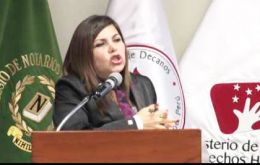
Around 395,000 Venezuelans have applied for a Temporary Stay Permit (PTP) in Peru, National Migration Superintendent Roxana del Aguila announced Monday.
-
Tuesday, December 18th 2018 - 09:23 UTC
Mexico new government first budget committed “to fiscal and financial discipline”
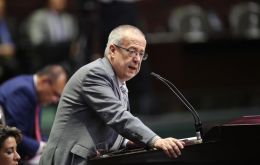
Mexico’s new government avoided major surprises in its closely watched first budget, sticking to promises made to investors who have been jittery about plans for Latin America’s No. 2 economy.
-
Tuesday, December 18th 2018 - 09:08 UTC
US wins “dolphin safe” tuna-labeling legal battle against Mexico at WTO

The United States won a legal battle over “dolphin safe” tuna-labeling on Friday, when the World Trade Organization’s appeals judges dismissed Mexico’s argument that the U.S. labeling rules violated WTO rules
-
Tuesday, December 18th 2018 - 08:00 UTC
García Márquez relative rescued from kidnappers in Colombia after 3 months

Melissa Martínez García, a relative of the late Nobel Literature Prize winner Gabriel Garcia Marquez has been freed after being kidnapped and held for ransom for over three months, Colombian authorities announced Monday.
-
Tuesday, December 18th 2018 - 07:48 UTC
Evo to attend Bolsonaro's inauguration in Brasilia Jan. 1
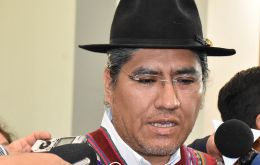
Bolivia's President Evo Morales will attend the inauguration of Brazil's new president, Jair Bolsonaro, on January 1 in Brasilia, Foreign Minister Diego Pary announced Monday.
-
Monday, December 17th 2018 - 18:47 UTC
Cubans outraged on social media over shortage of bread
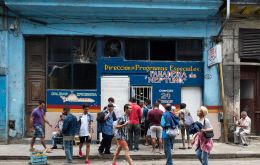
With 3G technology available only a fortnight ago, Cubans took their anger over to social media to complain for the shortage of bread on the island.
-
Sunday, December 16th 2018 - 15:39 UTC
AMLO announces plan to reshape Mexico's oil production

Mexican President Andrés Manuel López Obrador, commonly referred to by his acronym as AMLO, Saturday launched the National Plan for the Production of Hydrocarbons in a move to strengthen the country's oil industry.
-
Saturday, December 15th 2018 - 09:34 UTC
UN forecasts 2 million Venezuelans will emigrate in 2019

Around two million more Venezuelans are expected to flee their country during 2019, according to a United Nations forecast released Friday in Geneva. If true, the total number of Venezuelan migrants could reach 5.3 million a year from now.
-
Saturday, December 15th 2018 - 09:20 UTC
Investigation into the death of Guatemalan child in the custody of US Border Patrol
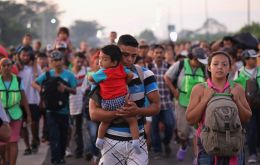
An investigation has been launched after a seven-year-old girl died while in the custody of the US Border Patrol. The Guatemalan child, named as Jakelin Caal Maquin, was detained last week after crossing the US-Mexico border with her father, officials say.
-
Saturday, December 15th 2018 - 04:32 UTC
ALBA - TCP renews commitment against US influence in the region at Havanna Summit
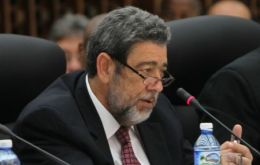
Latin American leftwing governments which strongly oppose Washington's policies for the region gathered in Havanna at the XVI Summit of the Bolivarian Alliance for the Peoples and the Treaty of Commerce of the Peoples (ALBA - TCP) to renew their regional commitment.
